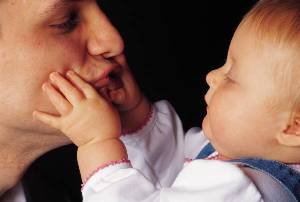|
PreSchool Lessons that develop early readers and learning SkillsPreschool lessons begin the moment your baby enters into this world: words and language become a major part of her life. The more you talk, sing, and read to your baby, the more exposure she has to language. The more language she is exposed to, the easier reading will be for her. The earlier she is taught to read, the better she will perform in school and life.
Hopefully, you're not intimidated by the facts above. It doesn't mean that you should begin to teach alphabets to your baby in a "school room" way.
What can you do at home?
1. Talk to your infant and toddler to help him learn to speak and understand the meaning of words. Point to objects that are near and describe them as you play and do daily activities together. Having a large vocabulary gives a child a great start when he enters school. 2. Read to your baby every day starting at six months of age. Reading and playing with books is a wonderful way to spend special time with her. Hearing words over and over helps her become familiar with them. One of my favorite online reading spots is storyplace.org. This award winning website provides age appropriate online stories and activities for FREE. 3. Use sounds, songs, gestures and words that rhyme to help your baby learn about language and its many uses. Babies need to hear language from a human being. Television is just noise to a baby. 4. Point out the printed words in your home and other places you take your child such as the grocery store. Spend as much time listening to your child as you do talking to him. 5. Take children’s books and writing materials with you whenever you leave home. This gives your child fun activities to entertain and occupy him while traveling and going to the doctor’s office or other appointments. 6. Create a quiet, special place in your home for your child to read, write and draw. Keep books and other reading materials where your child can easily reach them.
7. Help your child see that reading is important. Set a good example for your child by reading books, newspapers and magazines.
U.S. Department of Education, Office of
Intergovernmental and Interagency Affairs, Educational Partnerships and Family Involvement Unit, Reading Tips for
Parents, Washington, D.C., 2003. Return from PreSchool Lessons to ChildrensBook-Worm.com
|





 Experts all agree that from birth to around age 5, language retention is natural. Babies may not be able to verbalize words, but they are soaking them in.
Experts all agree that from birth to around age 5, language retention is natural. Babies may not be able to verbalize words, but they are soaking them in.